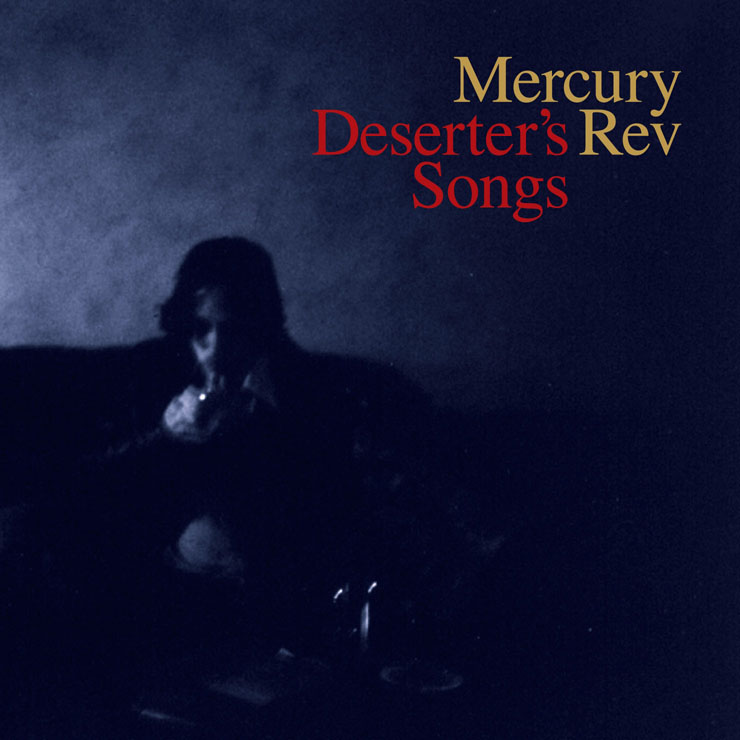Like their sister-band The Flaming Lips, Mercury Rev took the scenic route to success. After a messy debut album and an equally messy follow-up they ditched their front man and took a gentler and much more interesting career path, with the jazzy, dreamy and startling See You on the Other Side being a charmingly rough and ready blueprint for what would come after a brief split and guitarist Grasshoper’s brief stray in a monastery. When Deserter’s Songs was released in 1998 nobody had any great expectations for it, but it touched a nerve and it found an audience that would remain entranced by its Americana lullabies to this day.
After all the guitar and electronica heavy music that had dominated most of the 90s, the rock music world was exhausted, it needed a rest and a soothing balm to ease its troubles. That this balm was provided by Mercury Rev was a complete and total surprise. Deserter’s Songs, with it’s bowed saws, soothing keyboards, harps, gentle guitars, calm strings and all manner of other ghostly sounds was a world away from what the music press had spent the last eight years falling head-over-heels in love with and it was all the better for it. This was gentle, intelligent and introspective music and it had the added bonus of being exactly what a lot of people needed to hear at that time.
“Holes” lays out Mercury Rev’s new modus operandi magnificently and is still one of my favourite tracks on the album, with its talk of moles, smoke-like streams and polished stones. The carefully created mood is maintained by the next two tracks is a nice change from all the bands who show their cards too early and then this is followed by a ghostly instrumental which prepares us nicely for a slight change in pace that arrives along with The Band’s Levon Helm playing drums on “Opus 40”, one of the albums more obvious attempts at a pop song that nevertheless remains ethereal and uplifting. Helm’s former band mate Garth Hudson also pitches in on the “Hudson Line”, a song which I have only recently discovered the joy of. Yet another concerted attempt at a pop song is “Goddess On A Hiway”, which again is strangely uplifting without appearing to break a sweat despite having one of the biggest choruses on the album.
The beauty of Deserter’s Songs is that it works as a fully-formed cohesive whole, allowing the music to take you on a soothing journey through a dream like state, the soundscape changing in a seamless and gentle manner, that is until the music takes one final twist with the final track, when “Delta Sun Bottleneck Stomp” takes you with bounding enthusiasm into anthemic territory and provides an enjoyable soundtrack to ride into the sunset to.
Mercury Rev’s journey through the subsequent eighteen years has seen them wrestle with the problem of how to top this very special album. I don’t know whether Mercury Rev will ever again match the grandeur of Deserter’s Songs, but then again I’d struggle to name anyone who could.














No Comment